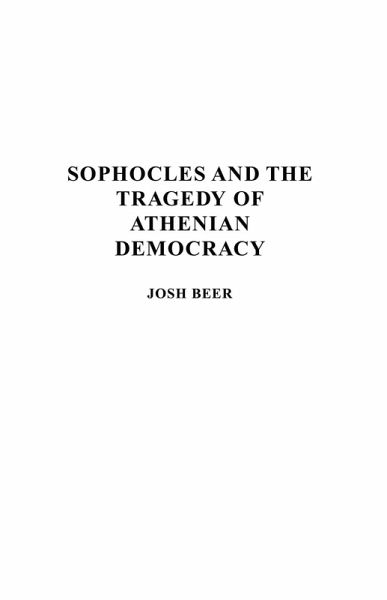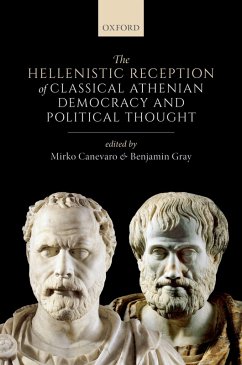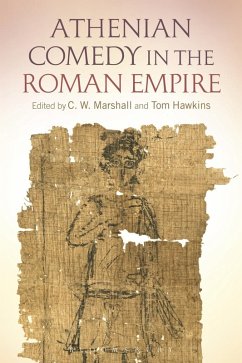
Sophocles and the Tragedy of Athenian Democracy (eBook, PDF)
Versandkostenfrei!
Sofort per Download lieferbar
68,95 €
inkl. MwSt.
Weitere Ausgaben:

PAYBACK Punkte
34 °P sammeln!
The Athenian democracy of the 5th century B.C. created the most important political theatre of western culture. Sophocles, the most successful tragic playwright of the age, was a radical innovator who produced his tragedies to present to his audience complex moral, social, and political issues of a kind that they might be faced with in their various legal and political assemblies. Beer examines Sophocles as a political playwright against the background of Athenian democracy, breaking new ground by showing the importance of the mask for understanding Sophoclean tragedy and redefining the notion...
The Athenian democracy of the 5th century B.C. created the most important political theatre of western culture. Sophocles, the most successful tragic playwright of the age, was a radical innovator who produced his tragedies to present to his audience complex moral, social, and political issues of a kind that they might be faced with in their various legal and political assemblies. Beer examines Sophocles as a political playwright against the background of Athenian democracy, breaking new ground by showing the importance of the mask for understanding Sophoclean tragedy and redefining the notion of skenographia, or setting the scene. He concludes that Sophocles revolutionized the concept of dramatic space. The Athenian tragic theatre was deeply political and played an important and active role in the life of Athenian democracy. This book presents an introduction to the political nature of Greek tragedy and Sophoclean tragedy in an effort to shed new light on the dramatic works of the 5th century playwright. As Aristotle noted, Sophocles' two most important innovations were the introduction of the third actor and skenographia, which brought tragedy to its fully evolved form. Beer argues that although his use of the third actor has been widely understood, his use of skenographia has not. Carefully exploring the true sense of this method of using dramatic space, Beer brings a new understanding to the works of this old master.













